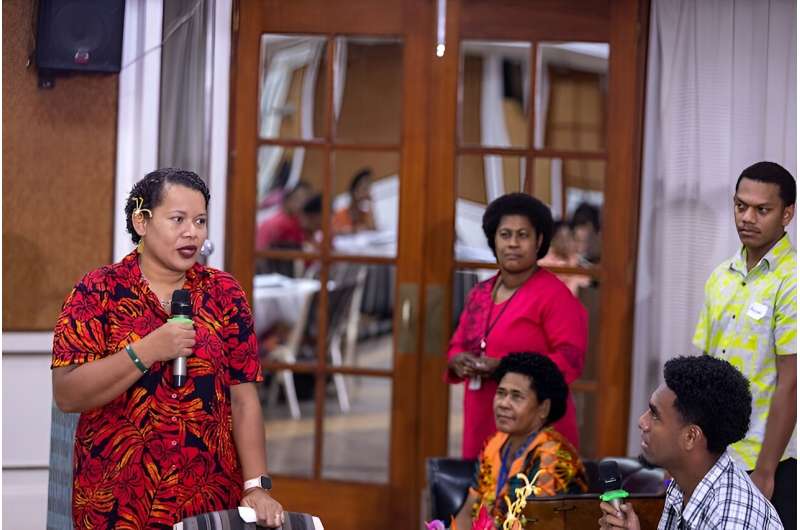A new study from the Murdoch Children’s Research Institute (MCRI) and the Fiji Government reveals how a innovative program is empowering local leaders to promote vaccine education and build trust within their communities. By leveraging trusted voices and utilizing sports like cricket and rugby, the ‘Vaccine Champions Program’ has successfully increased COVID-19 booster and childhood vaccination rates in Fiji. This approach highlights the importance of community engagement in tackling complex public health challenges. Vaccination and community engagement are crucial for eradicating preventable diseases worldwide.

Empowering Local Leaders to Champion Vaccines
In Fiji, the Vaccine Champions Program has taken a unique approach to boosting vaccine uptake. By training community leaders, including faith and village leaders, the Red Cross, and coaching staff from Fiji Rugby and Fiji Cricket women’s team, the program has been able to leverage trusted voices within the local communities.
The comprehensive training sessions focused on equipping these ‘vaccine champions’ with the knowledge and communication skills to effectively educate their peers about the benefits of COVID-19 boosters, COVID-19 vaccines for 5 to 18 year olds, and routine childhood vaccinations. Over the course of six months, 35 champions conducted 54 sessions, reaching more than 1,700 people in Fiji. This grassroots approach has been instrumental in addressing vaccine hesitancy and building confidence in the local population.
Harnessing the Power of Community Engagement
The Vaccine Champions Program highlights the importance of community engagement in promoting public health initiatives. As Dr. Jessica Kaufman, from the MCRI, explains, ‘During the COVID-19 pandemic, the value of community engagement strategies was increasingly recognized as governments realized that promoting vaccines through broad media campaigns alone was not sufficient to overcome diverse access and acceptance barriers to uptake.’
By empowering local leaders and healthcare workers to become vaccine advocates, the program has been able to leverage their deep understanding of their communities, their ability to communicate in the local language, and their influence on social norms. This approach has proven to be highly effective, with the study reporting that attendees’ intention to receive a COVID-19 booster increased from 41% to 83% after participating in the program.
Sustaining Trust and Driving Lasting Change
The success of the Vaccine Champions Program in Fiji underscores the crucial role of building and maintaining trust in public health initiatives. As MCRI Professor Margie Danchin points out, ‘Living in the community, vaccine champions are able to speak the local language, highlight local motivating factors and influence social norms to encourage vaccination.’
By taking the time to train and empower these community leaders, the program has been able to address misinformation, answer questions, and provide key facts about vaccine safety and effectiveness. This holistic approach has not only boosted vaccination rates but also fostered a culture of trust and open dialogue within Fiji’s communities. As the program continues to evolve, it serves as a model for other countries seeking to tackle complex public health challenges through the power of community engagement.
